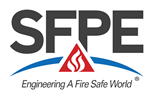FEMTC 2020
Evacuation Modelling Cognitive Biases: Research, Development, And Application 
Michael Kinsey - Arup Shanghai
Abstract
Human behavior in fire research, the number of evacuation models being developed, and the complexity of the models themselves, has dramatically increased in recent years. This has led to a proliferation of evacuation model usage within the building design process. The vast majority of research within the evacuation modelling community is focused on how people behave during emergencies and how this can be represented. Relatively little attention has been given to how research is conducted, how developers design/implement the evacuation models, or how engineers/consultants use the models to inform the building design process. The complexity of these areas and relative immaturity of the engineering field risks associated stakeholders having more unconstrained decisions to make which can make them more susceptible to human errors in this decision-making. Errors in decision-making may be caused by a lack of resources (e.g. time, information available, etc.) or over focus on certain information through cognitive biases. This paper provides an overview of general decision-making theory including heuristics and cognitive biases with examples of cognitive biases which may exist within evacuation modelling research, model development, and use within the building design process. An online evacuation model user survey was conducted to ascertain to what extent cognitive biases may occur when using evacuation models. Results from the survey provide empirical basis for supporting that cognitive biases do occur in evacuation model usage. The paper is intended to prompt consideration of how decision-making may be improved within evacuation modelling research, model development, and model usage.
Presentation
Resources
| Paper | Presentation | ||
|---|---|---|---|
| HTML | HTML | ||
| Resources Archive File (.zip) | |||

